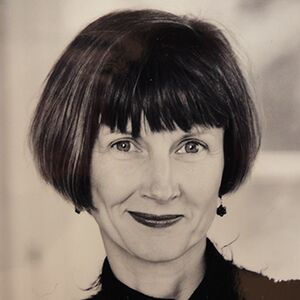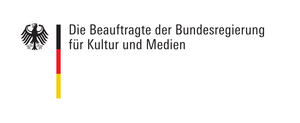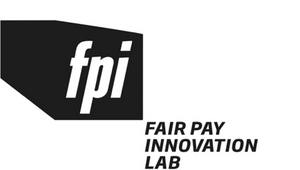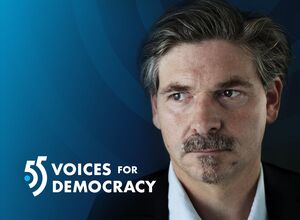Thomas Mann House Events Archive
March 2020
Lecture by Katharina Sykora: "On Showing: Ulrike Ottinger's Deictic Gestures." Lunch Talk at UCLA
Royce Hall 236 UCLA (10745 Dickson Ct Los Angeles, CA 90095)

Information
Ulrike Ottinger is an internationally renowned artist whose work has been called a 'small universal theater' of its own (kleines Welttheater). Embracing film, photography, theater, and exhibitions, it draws the viewers' attention to the different ways of showing. The presentation will focus on this deictic structure in Ottinger's work and its presence both in her figures, her scenography, and the compositions of each frame. Showing her way of showing, Katharina Sykora wants to reflect upon this form of pointing things out demonstratively, like with the gesture of the index finger, and on how it generates cultural, historical, and gender differences.
Public event. Free admission.
Participant

Prof. Dr. Katharina Sykora received her doctorate from the University of Heidelberg in 1983, after which she worked as a research assistant in archives and museums. From 1994 to 2000, she was Professor of Middle and Contemporary Art History with a focus on gender studies at the Ruhr University Bochum. From 2001 to 2018, she was Professor of 19th and 20th Century Art History at the Institute of Art History at the University of Fine Arts Braunschweig. Between 2013 and 2018, she also held the post of head of the DFG Research Training Group The Photographic Dispositive. Her research focuses on the construction of gender, authorship and affects in visual culture and the media comparison of photography, painting and film. Katharina Sykora also works as an exhibition curator.
Partners
Villa Aurora & Thomas Mann House e. V. is supported by the German Federal Foreign Office and Federal Government Commissioner for Culture and the Media.


Political Tribalism in the 21st Century [CANCELED]
Mendelssohn Remise, Jägerstraße 51, 10117 Berlin
Information
This event is part of the series "The Backlash against Liberal Democracy," which brings together influential voices from Europe and the United States to shed light on different aspects of the challenges that liberal democracies face. Together with our guest Amy Chua, we will discuss how renationalization dominates the political atmosphere in the United States and how the role of identity and political polarization affect U.S. foreign policy.
Participant
Amy Chua is the John M. Duff, Jr. Professor of Law at Yale Law School and is a noted expert in the areas of foreign policy, globalization, and ethnic conflict. She is bestselling author of numerous books, among others, The Triple Package: How Three Unlikely Traits Explain the Rise and Fall of Cultural Groups in America (2013) and her runaway bestseller 2011 memoir Battle Hymn of the Tiger Mother. The New York Times writes: “Chua approaches the no-go areas around which others usually tiptoe.” In such fashion, she unabatedly addresses the rise of identity politics in the United States in her latest book Political Tribes: Group Instinct and the Fate of Nations.
Partner
A cooperation with GERMAN MARSHALL FUND OF THE UNITED STATES.
Fair Pay Political Roundtable with Birte Meier [CANCELLED]
Permanent Mission of the Federal Republic of Germany to the United Nations (871 United Nations Plaza, New York, NY 10017, USA)

Information
The Fair Pay Political Roundtable will address how to deal with legislations enshrining fair pay principles as individuals. Equal pay for equal work and work of equal value has been high on the international agenda, as the UN Human Rights Council Resolution on equal pay and the engagement of the Equal Pay International Coalition (EPIC) demonstrates. There are a variety of countries who are rapidly progressing in fair pay legislations. But how can individuals use these laws to ensure fair pay for themselves, in their organizations or private environment.
In the Fair Pay Political Roundtable, experts from policy-making, NGOs, and academia will exchange on legislative approaches across the world and evaluate these approaches in how far they are practically supporting citizens in overcoming the wage gap.
The gender pay gap with its underlying causes is a global phenomenon: no country can report a wage gap of zero. There is strong support for equal pay, as an issue of fairness, and the readiness to act is immense. Irrespective of this consensus, however, women continue to be paid less for the same work or work of equal value.
Please register here
Registration starts at 3pm, please plan your time accordingly
Side event during the 64th Session of the Commission on the Status of Women
Participant

Birte Meier, born in 1971, studied at the FU Berlin, the University of Chicago and the University of the Arts Berlin and holds a master's degree in North American Studies, Modern History and Journalism. Since 2007, she has been a Frontal21 editor, producing investigative stories on politics and business - primarily on digitalization, globalization and the transformation of the market economy and democracy.
Partners




Villa Aurora & Thomas Mann House e. V. is supported by the German Federal Foreign Office and Federal Government Commissioner for Culture and the Media.


Panel Discussion: "Challenging the Gender Pay Gap"
1014 - space for ideas (1014 Fifth Ave New York, NY 10028)

Information
Join the former Director of the Office of Federal Contract Compliance Programs under President Obama Patricia Shiu and the German investigative journalist Birte Meier for a dialogue on equal pay efforts in the United States and Europe. Coinciding with the United Nations Commission on the Status of Women, 1014 and the American Council on Germany present this event that elaborates on the current situation of gender equality from a transatlantic perspective. What are the ways forward to close the gender pay gap? What are the best practices and where have policymakers recently failed? Why has it been so hard to put regulatory policies into place which would help to close the gap?
Moderated by Steven Sokol, President of the American Council on Germany (ACG). Presented in cooperation with the ACG and the Thomas Mann House.
Participants
Patricia Shiu is a consultant on diversity and inclusion policies that reflect an organization’s mission, culture, and brand. Appointed by President Barack Obama, Ms. Shiu served as the Director of the Office of Federal Contract Compliance Programs (OFCCP) at the Department of Labor (DOL) in Washington, DC from 2009-2016. OFCCP enforces laws that prohibit workplace discrimination on the basis of race, color, sex, national origin, religion, sexual orientation, gender identity, disability, and veteran status. OFCCP regulates the federal contractor community that employs approximately 20% of the American workforce.
While at DOL, Ms. Shiu and her team updated OFCCP regulations prohibiting discrimination and requiring affirmative action on the basis of sex, disability and veteran status. They also finalized new regulations, adding sexual orientation and gender identity as protected categories, and prohibiting discrimination against applicants and employees who inquire about, discuss or disclose their or another employee’s compensation.
Birte Meier, born in 1971, studied at the FU Berlin, the University of Chicago and the University of the Arts Berlin and holds a master's degree in North American Studies, Modern History, and Journalism. Since 2007, she has been a Frontal21 editor, producing investigative stories on politics and business - primarily on digitalization, globalization and the transformation of the market economy and democracy.
During her current fellowship at Thomas Mann House in Los Angeles, Birte Meier researches and publishes on Equal Pay: In California, there has been a cultural change in the matter of Equal Pay. Women are beginning to successfully demand equal pay for equal work. How did California do that? What can Germany learn from California so that women are empowered to effectively demand their constitutional right to equal pay?
Partner
This event is a cooperation of Villa Aurora & Thomas Mann House and tenfourteen.

Villa Aurora & Thomas Mann House e. V. is supported by the German Federal Foreign Office and Federal Government Commissioner for Culture and the Media.


Jan-Werner Müller: On the Future of Political Representation [CANCELLED]
Los Angeles

Information
Most political scholars today agree: political parties, at least in Europe, are past their peak. Approval ratings for parties are on a steady decline and membership is dwindling. But from Podemos in Spain and Syriza in Greece to the rightwing populist Alternative für Deutschland, the past years have also brought about new political parties that have—at least ostensibly—integrated into existing political systems. Is it thus accurate to talk about a crisis of political representation today? How might political legitimization and representation be produced in the future? And which role will parties and political media play?
Political philosopher Jan-Werner Müller (Princeton) will be speaking at the Thomas Mann House as part of the series “55 Voices for Democracy”. The series “55 Voices for Democracy” is inspired by the 55 BBC radio addresses Thomas Mann delivered from his home in California to thousands of listeners in Germany, Switzerland, Sweden, and the occupied Netherlands and Czechoslovakia between October 1940 and November 1945. In his monthly addresses, Mann spoke out strongly against fascism, becoming the most significant German defender of democracy in exile.
Building on this legacy, the series brings together internationally-esteemed intellectuals, scholars, and artists to present ideas at the Thomas Mann House for the renewal of democracy—among them Orhan Pamuk, Bruce Ackerman, Ananya Roy, Timothy Snyder, Francis Fukuyama and Seyla Benhabib. The event with Jan-Werner Müller will be moderated by political scientist Dawn Nakagawa, executive vice president of the Berggruen Institute.
Participants
Jan-Werner Müller teaches political theory and history of ideas at Princeton University. He studied at FU Berlin, University College London, University of Oxford and Princeton University. His book “What is Populism?” was translated into various languages and is regarded as a central text for the understanding of current political developments. Jan-Werner Müller comments regularly on current affairs; he writes, among others, for Foreign Affairs, Neue Zürcher Zeitung, New York Times and Süddeutsche Zeitung. Last year his book “Furcht und Freiheit. Für einen anderen Liberalismus” (“Fear and Freedom: For a different Liberalism”) was published by Suhrkamp.
Dawn Nakagawa is Executive Vice President of the Berggruen Institute. The institute is aiming to deepen our understanding of the great developments of our time and to foster appropriate political institutions. Areas of activity of the institute include the future of democracy, the transformation of the human, globalization and economic change. Before her position at the Berggruen Institute, Dawn Nakagawa was active for the Pacific Council on International Policy in Los Angeles and the consulting firm McKinsey. She holds degrees from McGill University and the Chicago Booth School of Business.
Partners
Media partners for the series are Deutschlandfunk, Los Angeles Review of Books and Süddeutsche Zeitung.



Villa Aurora & Thomas Mann House e. V. is supported by the German Federal Foreign Office and Federal Government Commissioner for Culture and the Media.


Panel Discussion: "The Habitus of Power: Female Presidents in TV Series" [CANCELLED]
USC Max Kade Institute (2714 S Hoover St Los Angeles, CA 90007)

Information
While the election year is bringing considerable interest in whether or not a woman may conquer the White House for the first time, female presidents have long become a fictional reality in various TV shows.
From House of Cards' Claire Underwood to Allison Taylor in 24 and Elizabeth McCord in Madame Secretary to Selena Meyer in Veep, female presidents are partially portrayed as competent leaders with a distinct thirst for power who expose or utilize the sexism of the political establishment. But often enough their presence in the highest office is also a cause for concern: these presidents have to meet the suspicion to have obtained the position illegitimately and equate to a crisis for the Oval Office, or even to the democratic system in its entirety.
Elisabeth Bronfen, cultural scientist at the University of Zurich, Heike Paul, americanist and Fellow at the Thomas Mann House and Ellen Seiter from the USC School of Cinematic Arts will reflect on current American TV series and how they prepare us for the first female US president. The event is moderated by historian Paul Lerner, director of the USC Max Kade Institute.
Participants
Elisabeth Bronfen is Professor of English and American Studies at the University of Zurich and Global Distinguished Professor at New York University. A specialist in the 19th and 20th century literature she has also written articles in the area of gender studies, psychoanalysis, film, cultural theory, and visual culture. Current research projects include: Serial Shakespeare; Mad Men and the American Cultural Imaginary; Seriality and twenty-first century DVD-novels; the gender of political sovereignty; and a monograph on Shakespeare's theater.
Heike Paul is professor for American Studies at Friedrich-Alexander-University Erlangen-Nuremberg (FAU) and Fellow at the Thomas Mann House, Los Angeles. Her research in cultural studies focuses especially on forms and functions of the sentimental and on dimensions of tacit knowledge. In 2018, Heike Paul was awarded with the Gottfried-Wilhelm-Leibniz-Preis of the German Research Foundation. She is co-author of The Comeback of Populism: Transatlantic Perspectives im Winter Verlag, 2019.
Ellen Seiter holds the Nenno Endowed Chair in Television Studies at the USC School of Cinematic Arts where she teaches courses on television and new media history, theory and criticism in the Critical Studies Division. She is the author of The Internet Playground: Children’s Access, Entertainment and Mis-Education (Peter Lang, 2005) and Television and New Media Audiences (Oxford, 1999). Her latest book, The Creative Artist’s Legal Guide: Copyright, Trademark and Contracts in Film and Digital Media Production was published in 2012 by Yale University Press.
Partners
This event is a cooperation of Villa Aurora & Thomas Mann House and USC.

Villa Aurora & Thomas Mann House e. V. is supported by the German Federal Foreign Office and Federal Government Commissioner for Culture and the Media.


Symposium with Heike Paul: "Disenchanted Democracy? Cultural Imaginaries of Order and Belonging in a Transatlantic Perspective" [CANCELLED]
River Den, Drake Performance Center, Ohio State University

Information
This symposium held on the campus of the Ohio State University brings together speakers from the U.S. and Germany to address aspects of democratic culture and its discontent in the present moment. The latter reveals itself in particular expressions of emotion and negative affect, such as anger, resentment, indignation, and rage, that often thrive on populist simplification and ‘othering’ of specific groups and/or individuals. This has prompted interventions by scholars, journalists, and activists to think about modes of dialogue and reconciliation across various kinds of divides and in different cultural registers.
This event seeks to add to the ongoing debate by historicizing the role of affect and feeling in the history of Western democracies and to develop new perspectives on questions of inclusion and exclusion in social, political, and cultural imaginaries with a view to different media (music, television series, etc.) and forms of political communication. In times of strained ‘official’ transatlantic relations and right-wing populist successes on both sides of the Atlantic, this symposium seeks to identify common ground and shared concerns in working through the current moment of crisis. Participants include Noëlle McAfee, Nikolai Blaumer, Elisabeth Bronfen, Katharina Gerund, Nadine Hubbs, Benjamin McKean, Heike Paul, Marie Rotkopf, Barry Shank, and Michelle Sizemore.
Programs
5 p.m. Symposium Opening by the Organizers
Keynote Address I: Noëlle McAfee (Emory U)
“Cherchez La Thing: The Melancholic Demands of Extremism”
Keynote Address II: Elisabeth Bronfen (Zurich U)
“Political Enchantments: The Vexed Question of
Belonging in The Americans”
Reception at Ohio State University
9 a.m. Michelle Sizemore (U of Kentucky, Lexington)
“The President’s Two Bodies and the People’s Two Voices.”
Heike Paul, Response to Michelle Sizemore
Marie Rotkopf (Hamburg/Leuphana U, Lueneburg)
“Who Is the Boss”
Lunch break
2 p.m. Benjamin McKean (OSU, Columbus)
“Populism and the Anxiety of Equality”
Katharina Gerund, Response to Benjamin McKean
Coffee break
Nadine Hubbs (U of Michigan, Ann Arbor)
“What if this Machine Really Does Kill Fascists?
Reckoning with Music’s Political Power”
Barry Shank, Response to Nadine Hubbs
Final discussion & wrap-up
Participant

Heike Paul was born in Koblenz in 1968. From 1987 to 1994, she studied American Studies, Political Science, and English Studies at Goethe University Frankfurt and at the University of Washington, Seattle. After her master’s degree, she obtained her doctorate in the context of the research training group “Gender Difference and Literature” at LMU Munich and subsequently worked as a postdoc and assistant professor at Leipzig University, where she earned her postgraduate degree (Dr. phil. Habil.) in 2004. In the same year, she was appointed chair of American Studies at Friedrich-Alexander-University Erlangen-Nuremberg. Her research in cultural studies focuses especially on forms and functions of the sentimental (Global Sentimentality Project) and on dimensions of tacit knowledge. Heike Paul is a member of the Bavarian Academy of Sciences and Humanities and director of the Bavarian American Academy, in which she is deeply committed to transatlantic networking.
Partners
The event is a collaboration with the Ohio State University and the Friedrich-Alexander University Erlangen-Nürnberg






